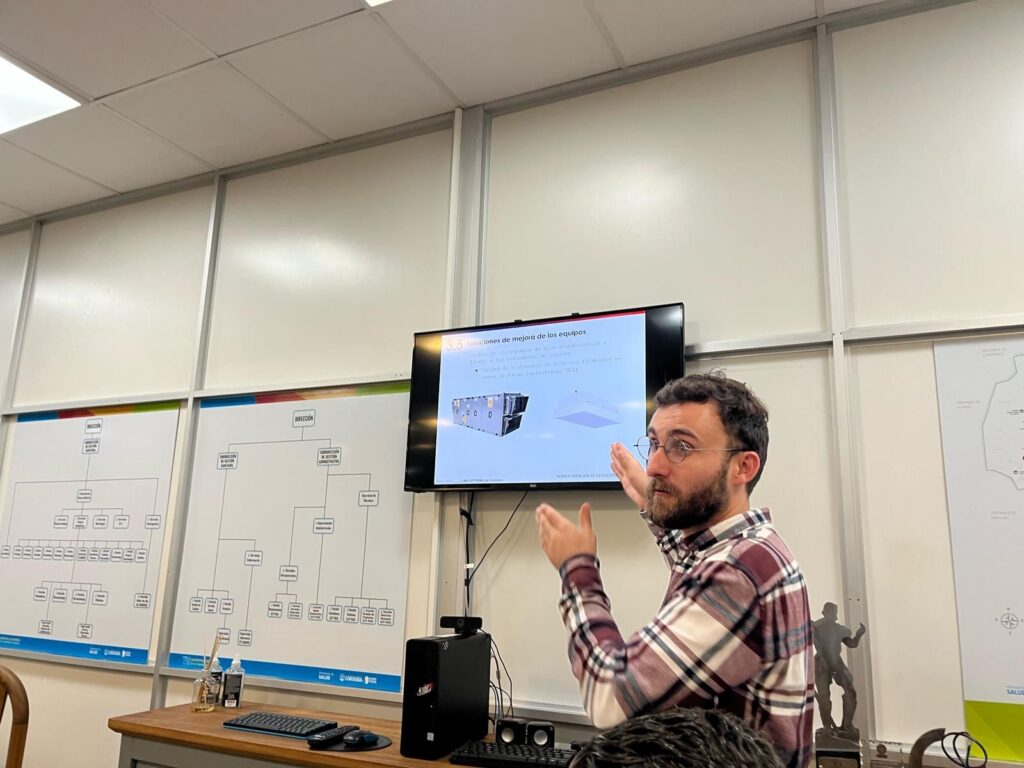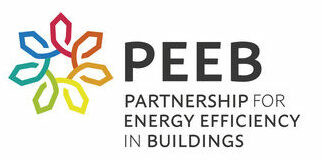Amid rising energy prices and hospital saturation due to the sharp increase in public demand for healthcare, energy renovation emerges as a strategic lever to bolster the territory’s health and environmental resilience. A new feasibility study, supported by PEEB, aims to identify sustainable solutions to tackle these issues.
Energy Efficiency: A Public Health Imperative
In Argentina, energy efficiency in public facilities—particularly hospitals and schools—has become a critical issue at the intersection of health, economic, and climate concerns. In some hospitals in the province of Córdoba, working and care conditions are directly affected by inadequate infrastructure.
“During the summer, when temperatures soar above 40°C, patients have suffered heat-related complications while waiting for care.”, reports a healthcare professional.
Elsewhere, ventilation poses significant concerns. For instance, in some units, staff have had to procure cooling devices themselves to make rest areas more bearable. These issues are exacerbated in areas lacking adequate ventilation, making daily operations more difficult and adding to the growing pressure on a health system already facing multiple challenges.
Towards Sustainable Hospitals
The province of Córdoba has adopted a “green hospital” policy aligned with the Sustainable Development Goals, focusing on energy efficiency, sustainable construction, and the management of hazardous substances. However, with the progressive removal of federal energy subsidies and the rise in heatwaves, energy costs are becoming increasingly unsustainable for healthcare facilities.
Despite the existence of a robust legislative framework—such as the Provincial Energy Efficiency Programme—implementation remains challenging. In a climate characterized by extreme temperature fluctuations, adapting buildings is essential to ensure quality care and protect the health of both patients and medical staff.
A Study in Progress
To address this issue, a feasibility study supported by the PEEB Cool programme is currently underway to identify sustainable solutions to tackle several major issues affecting hospitals. “These may include the replacement of central heating and cooling systems, which will be converted to electric power and modernized to improve their reliability and performance, and simplify their maintenance, or thermal insulation of walls and roofs using bio-sourced materials to reduce heat loss in winter and heat gain in summer,” explains Silvia Puddu, coordinator of the PEEB Cool programme.

In line with the objectives of PEEB Cool to reduce energy consumption and GHG emissions of the buildings by at least 40% and improve the thermal comfort by at least 20%, experts are working to select bioclimatic and energy efficiency measures tailored to the specificities of each hospital. The installation of photovoltaic panels on roofs or in car parks to significantly reduce the carbon footprint of hospitals and mitigate the impact of energy price variations is also under consideration.
A similar assessment is ongoing in the province of Santa Fe, addressing both health and education sectors.
The Complementarity of the GIZ/AFD Approach
Special attention is being paid to synergies between these studies, potential loans from AFD that may follow, and capacity-building efforts led by GIZ in the provinces of Córdoba and Santa Fe, with a view to replication and scaling up of similar projects.
This complementary approach in the frame of the PEEB Cool program aims to address both the regulatory framework at the provincial level and the scaling up of financing for concrete projects—removing investment barriers to achieve maximum impact.
